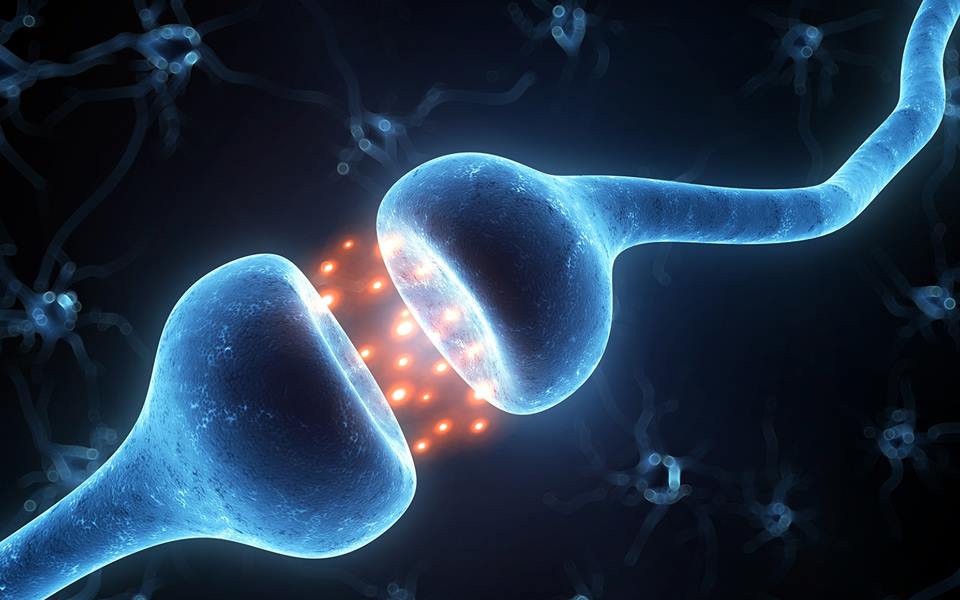- Posted by: Tommy Tran
- Thu, 26/02/2015, 20:23 (GMT+7)
- Kinh nghiệm chữa bệnh
- 0 Bình luận
Nghiên cứu của Dr. Karen Vieira: Hallucinogens, Methamphetamine, Cocaine
Original content:
Alcohol, Drugs and Weight Gain or Loss: What the Research Says
Stimulants
Drugs with stimulant effects – caffeine, ecstasy (MDMA), cocaine and methamphetamines (e.g., speed or crystal meth) among this list – can speed up brain activity, and have the potential to increase blood pressure and heart rate. Stimulants can alter certain mental processes, with people often failing to recognize the homeostatic urges of hunger or dehydration. When stimulants are abused, this effect could result in weight loss and other, more lethal health consequences.
Ecstasy (MDMA)
Ecstasy is a commonly taken illicit drug that is typically sold on the streets. A serious problem that is associated with the purchase of ecstasy involves not knowing whether the drug is made up of a pure product or a combination of other harmful substances. Commonly reported adulterant substances include amphetamine, ephedrine and over-the-counter cold remedies such as pseudoephedrine and dextromethorphan (DXM).
Taking just one dose of ecstasy can cause harmful side effects such as [21]:
- Anxiety, paranoia or depression
- Memory and sleep disturbances
- A rapid, slow or irregular heartbeat, which may result in death
- A rapid loss of sodium (salt) in the blood, which can negatively impact normal functions in the body

The long-term abuse of ecstasy may result in serious muscle tissue damage and the release of muscle enzymes into the blood. These large proteins can deposit in the kidneys, leading to damage or overt renal failure.
Stimulants such as ecstasy often make people feel as if they have high levels of energy and this may prevent them from realizing that they are hungry or have not been drinking enough liquids. Long-term use may result in weight loss. The relatively long acting effects of ecstasy can elevate body temperature, and an accompanying state of dehydration can become quite serious, if not fatal. As with other psychoactive drugs, changes in mental processes can a host of negative influences on a healthy body weight, especially abused for long periods of time.
Cocaine
Cocaine is a highly addictive stimulant that increases blood pressure, suppresses the appetite and can cause regular users to eat fewer balanced meals than those who do not use cocaine [22]. Cocaine abuse also inhibits the ability to gauge the amount of fatty foods that are being eaten when feelings of hunger become dire [22].

Side effects such as these lead to irregular eating patterns and weight loss. Drug seeking behavior, which commonly occurs due to cocaine abuse, can also reduce the appetite thereby causing individuals to forget to eat properly and eventually begin to lose weight. The cessation of prolonged cocaine use leads to an increase in appetite and subsequent weight gain in some individuals.
Methamphetamine
Methamphetamines (speed, crystal meth, meth) share a number of effect on the mind and body with ecstasy, especially in regard to decreases in appetite and memory function. Of note, long term abuse of amphetamines may cause a syndrome of depression as well. Each of these side effects may result in unhealthy eating habits, weight loss and, secondarily to depression, even weight gain over time. Similar to cocaine cessation, the cessation of methamphetamines after a prolonged period of abuse has, in some cases, lead to a rebound appetite increase with resultant weight gain.
Hallucinogens
Hallucinogens dramatically alter the mind and the senses by causing people to experience a variety of sensory hallucinations – often seeing distorted images or objects that are not really there. These types of hallucinations often occur in conjunction with markedly abnormal behavior, anxiety attacks and paranoia.

PCP, LSD, ketamine and magic mushrooms all have the potential to elicit hallucinations or powerful dissociative experiences. People who take large amounts of ecstasy or marijuana may also report episodes of hallucination.
Hallucinogens can affect emotions, concentration, memory and thinking ability, as well as cause distorted vision and hearing. Drowsiness, sweating, nausea, vomiting and irregular breathing may also occur [23]. This array of issues, particularly in those who abuse them long-term, can lead to loss of appetite and diminished nutrition and, over time, contribute to unhealthy weight loss.
References
- American Psychiatric Association. Diagnostic and Statistical Manual of Mental Disorders: DSM-IV. 4th ed. Washington DC: Author; 2000.
- Zimatkin SM, bon' EI. The effects of alcohol on the developing brain. Morfologiia. 2014;145(2):79-88.
- Haseba T. Molecular evidences of non-ADH pathway in alcohol metabolism and Class III alcohol dehydrogenase (ADH3). Nihon Arukoru Yakubutsu Igakkai Zasshi. 2014; 49(3):159-68
- Swanson GR, Sedghi S, Farhadi A, Keshavarzian A. Pattern of alcohol consumption and its effect on gastrointestinal symptoms in inflammatory bowel disease. Alcohol. 2010; 44(3):223-8.
- Stickel F, Seitz HK. Update on the management of alcoholic steatohepatitis. J Gastrointestin Liver Dis. 2013; 22(2):189-97.
- González-Reimers E, Santolaria-Fernández F, Martín-González MC, Fernández-Rodríguez CM, Quintero-Platt G. Alcoholism: A systemic proinflammatory condition. World J Gastroenterol. 2014; 20(40):14660-14671.
- Calder PC, Albers R, Antoine JM, Blum S, Bourdet-Sicard R, Ferns GA, Folkerts G, Friedmann PS, Frost GS, Guarner F, Løvik M, Macfarlane S, Meyer PD, M'Rabet L, Serafini M, van Eden W, van Loo J, Vas Dias W, Vidry S, Winklhofer-Roob BM, Zhao J. Inflammatory disease processes and interactions with nutrition. Br J Nutr. 2009 May;101 Suppl 1:S1-45.
- Waugh N, Scotland G, McNamee P, Gillett M, Brennan A, Goyder E, Williams R, John A. Screening for type 2 diabetes: literature review and economic modelling. Health Technol Assess. 2007; 11(17):1-125.
- Moreno-Indias I, Cardona F, Tinahones FJ, Queipo-Ortuño MI. Impact of the gut microbiota on the development of obesity and type 2 diabetes mellitus. Front Microbiol. 2014; 5:190.
- Barry KL, Caetano R, Chang G, DeJoseph MC, Miller LA, O’Connor MJ, et al. Reducing Alcohol- Exposed Pregnancies: A Report of the National Task Force on Fetal Alcohol Syndrome and Fetal Alcohol Effect. Atlanta, GA: Centers for Disease Control and Prevention; 2009.
- Pfinder M. Anthropometric and health-related behavioral factors in the explanation of social inequalities in low birth weight in children with prenatal alcohol exposure. Int J Environ Res Public Health. 2014; 11(1):849-65.
- Otsuka R, Watanabe H, Hirata K, Tokai K, Muro T, Yoshiyama M, Takeuchi K, Yoshikawa J. Acute effects of passive smoking on the coronary circulation in healthy young adults. JAMA. 2001; 286(4):436-41.
- Moylan S1, Jacka FN, Pasco JA, Berk M. Cigarette smoking, nicotine dependence and anxiety disorders: a systematic review of population-based, epidemiological studies. BMC Med. 2012; 10:123.
- Carroll SL, Lee RE, Kaur H, Harris KJ, Strother ML, Huang TT. Smoking, weight loss intention and obesity-promoting behaviors in college students. J Am Coll Nutr. 2006; 25(4):348-53.
- Komiyama M1, Wada H, Ura S, Yamakage H, Satoh-Asahara N, Shimatsu A, Koyama H, Kono K, Takahashi Y, Hasegawa K. Analysis of factors that determine weight gain during smoking cessation therapy. PLoS One. 2013; 8(8):e72010.
- U.S. Department of Health and Human Services. The Health Consequences of Smoking—50 Years of Progress: A Report of the Surgeon General. Atlanta: U.S. Department of Health and Human Services, Centers for Disease Control and Prevention, National Center for Chronic Disease Prevention and Health Promotion, Office on Smoking and Health, 2014.
- Bell JR, Butler B, Lawrance A, Batey R, Salmelainen P. Comparing overdose mortality associated with methadone and buprenorphine treatment. Drug Alcohol Depend. 2009; 104(1-2): 73-7.
- Fishbain DA, Cole B, Lewis J, Rosomoff HL, Rosomoff RS. What percentage of chronic nonmalignant pain patients exposed to chronic opioid analgesic therapy develop abuse/addiction and/or aberrant drug-related behaviors? A structured evidence-based review. Pain Med. 2008; 9(4): 444-459.
- Lundqvist T. Cognitive consequences of cannabis use: comparison with abuse of stimulants and heroin with regard to attention, memory and executive functions. Pharmacol Biochem Behav. 2005; 81(2):319-30.
- McCabe SE1, West BT, Schepis TS, Teter CJ. Simultaneous co-ingestion of prescription stimulants, alcohol and other drugs: a multi-cohort national study of US adolescents. Hum Psychopharmacol. 2014; in press.
- Mørland J. Toxicity of drug abuse--amphetamine designer drugs (ecstasy): mental effects and consequences of single dose use. Toxicol Lett. 2000; 112-113:147-52.
- Ersche KD, Stochl J, Woodward JM, Fletcher PC. The skinny on cocaine: insights into eating behavior and body weight in cocaine-dependent men. Appetite. 2013; 71:75-80.
- Brust JC. Neurologic complications of illicit drug abuse. Continuum (Minneap Minn). 2014; 20(3 Neurology of Systemic Disease):642-56.
- Vittoria Matassini M, Krahn AD, Gardner M, Champagne J, Sanatani S, Birnie DH, Gollob MH, Chauhan V, Simpson CS, Hamilton RM, Talajic M, Ahmad K, Gerull B, Chakrabarti S, Healey JS. Evolution of clinical diagnosis in patients presenting with unexplained cardiac arrest or syncope due to polymorphic ventricular tachycardia. Heart Rhythm. 2014; 11(2):274-81.
- Ruetsch O, Viala A, Bardou H, Martin P, Vacheron MN. Psychotropic drugs induced weight gain: a review of the literature concerning epidemiological data, mechanisms and management. Encephale. 2005; 31(4 Pt 1):507-16.
- Centers for Disease Control and Prevention. Emergency department visits involving nonmedical use of selected prescription drugs – United States, 2004–2008. MMWR Morb Mortal Wkly Rep. 2010; 59:705-709.
- Brick J. Handbook of the medical consequences of alcohol and drug abuse. New York, NY: The Haworth Press; 2004.
About the Author
Dr. Karen Vieira, PhD MSM
 Dr. Vieira is a research scientist with a PhD in Biomedical Sciences from the University of Florida College of Medicine Department of Biochemistry & Molecular Biology. She has done clinical and laboratory research on diseases, cellular functioning and nutritional supplements. Her focus is helping people make dietary and lifestyle changes that prevent, cure or improve health conditions.
Dr. Vieira is a research scientist with a PhD in Biomedical Sciences from the University of Florida College of Medicine Department of Biochemistry & Molecular Biology. She has done clinical and laboratory research on diseases, cellular functioning and nutritional supplements. Her focus is helping people make dietary and lifestyle changes that prevent, cure or improve health conditions.

























